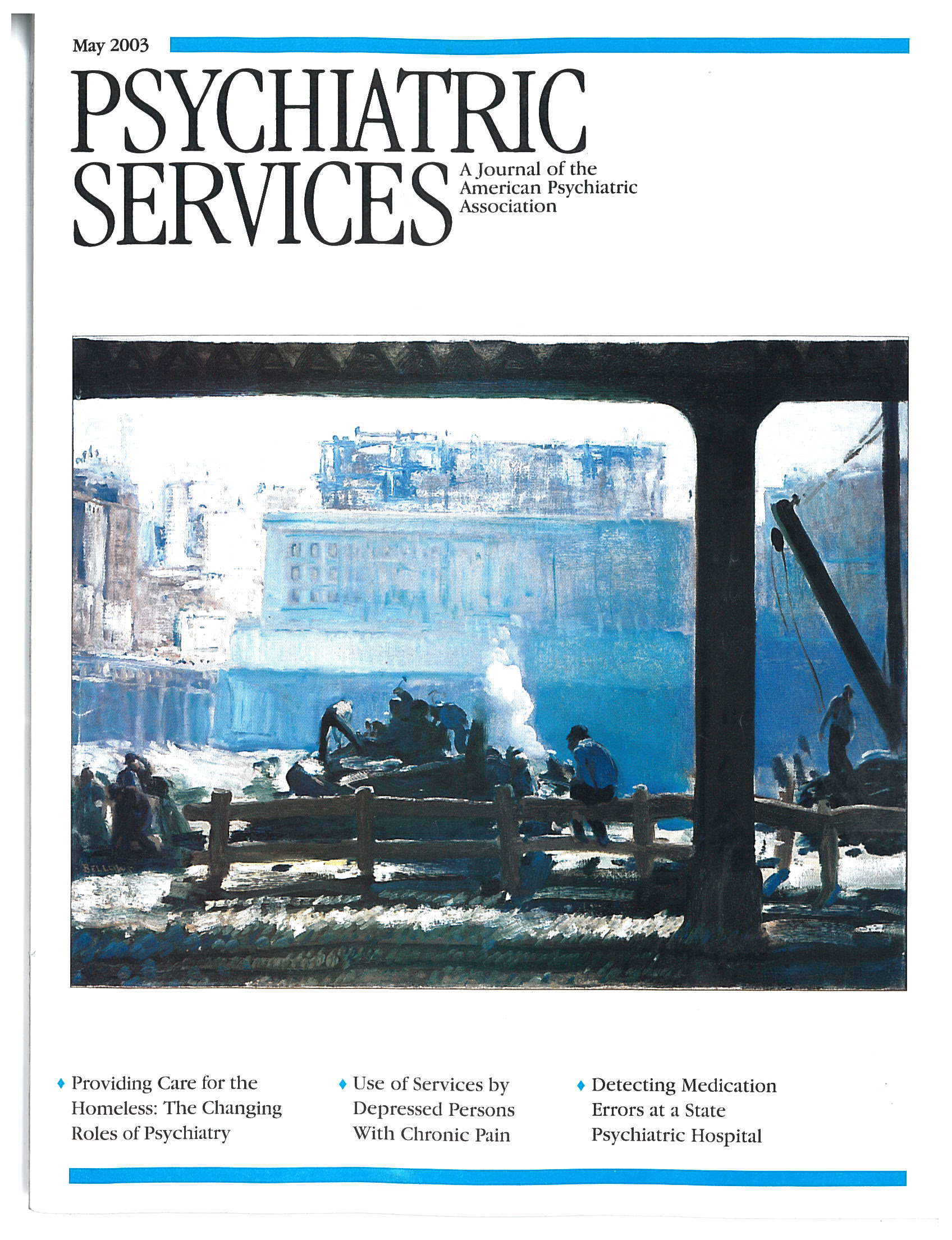Patients' Attitudes Toward Antidepressants
To the Editor: The general population and patients themselves remain ambivalent about psychopharmacotherapy (1,2). Patients' lack of acceptance of the need to take medications often leads to reduced treatment adherence. In a letter to Psychiatric Services, Hoencamp and colleagues (3) reported encouraging findings from a survey in the Netherlands that assessed 233 patients' attitudes toward antidepressants. For example, they found that 87 percent of the respondents agreed that taking a medication would help them to feel better and to tackle problems. However, their sample consisted mostly of women with depressive disorders who were middle-aged, and thus the results may have been biased toward more positive attitudes.
Little is known about the public's attitude toward the effects of psychotropic medications. We conducted a survey in Switzerland with a nationally representative population that assessed attitudes toward mental illness, psychiatric treatment, and the institutions involved (4). To assess attitudes toward medications, 1,737 persons aged 16 to 76 years who were living in a private household were provided with four positive and three negative statements about psychotropic medications. They responded on a scale of 1 to 5, with 5 indicating full agreement with the statement. One positive statement noted that psychotropic medications had more benefits than risks, and the other three statements addressed the important role of these medications in shortening inpatient stays and improving treatment and functioning. The negative statements were related to the risk of addiction, to sedation, and to reduced well-being. The respondents were also asked whether they had previous psychiatric treatment experiences (N=261) and, if so, whether they had taken psychotropic medications (N=151).
The mean±SD ratings of the positive statements were 3.41±.68 for the general population, 3.23±.68 for the subsample with treatment experience, and 3.61±.76 for the subsample treated with psychotropics (p<.001). The respective mean ratings for the negative statements were 3.22±.9, 3.23±.96, and 3.1±.9, and these means were not significantly different.
Limitations of this study arise from the usual problems in conducting research on public attitudes, such as including only communicative and cooperative people. Moreover, the survey did not ask for details about respondents' psychiatric history. Nevertheless, these results may help to clarify the public's attitude to psychotropic medications. The general population seemed to distinguish between positive and negative aspects of these medications. However, people who had received psychiatric treatment differed from other members of the public only in their more positive attitudes toward medications, not in their negative attitudes. Finally, those who had previously taken psychotropics had the most positive and the least negative attitudes.
Our results do not permit us to attribute causality. Nonetheless, we might assume from our findings that it is difficult to change negative attitudes toward psychotropic medications—even by providing people with psychopharmacotherapy. The differences in positive attitudes could be explained in two ways: either persons with a positive attitude to psychotropics are more ready to use medication or those who receive medication develop more positive attitudes during treatment. Whatever the explanation, our results suggest that clinicians who emphasize the positive aspects when speaking with a patient about psychotropic medications may help improve treatment compliance and satisfaction.
The authors are affiliated with the Psychiatric University Hospital in Zurich, Switzerland.
1. Jorm AF, Korten AE, Jacomb PA, et al: Helpfulness of interventions for mental disorders: beliefs of health professionals compared with the general public. British Journal of Psychiatry 171:233-237, 1997Crossref, Medline, Google Scholar
2. Sajatovic M, Rosch DS, Sivec HJ, et al: Insight into illness and attitudes toward medications among inpatients with schizophrenia. Psychiatric Services 53:1319-1321, 2002Link, Google Scholar
3. Hoencamp E, Stevens A, Haffmans J: Patients' attitudes toward antidepressants. Psychiatric Services 53:1180-1181, 2002Link, Google Scholar
4. Lauber C, Nordt C, Sartorius N, et al: Public acceptance of restrictions on mentally ill people. Acta Psychiatrica Scandinavica 102(suppl 407):26-32, 2000Google Scholar



